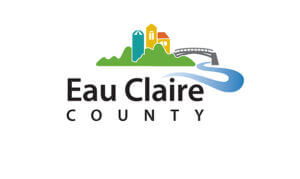The Eau Claire Area Chamber of Commerce, Eau Claire County Department of Human Services, and the Eau Claire City-County Health Department have joined forces to lead a community-wide collaborative effort to address homelessness. Key leaders from local organizations, businesses, nonprofits, government agencies, and those with lived & living experiences have come together to align efforts, build trust, and create meaningful solutions to one of our community’s most urgent challenges.
Homelessness impacts individuals and families across Eau Claire, creating ripple effects throughout the community. Solving this complex issue requires collective action and innovative thinking. The meeting established a strong foundation for collaboration by uniting diverse groups to work together in new and effective ways.
“We recognize that past efforts to address homelessness have faced challenges, often due to misalignment and a lack of shared vision,” said David Minor, President/CEO, and Eau Claire Area Chamber of Commerce. “This new cooperative approach is about resetting the conversation and building the relationships and strategies needed to create sustainable change.”
Minor continued, “One of the catalysts for this initiative was the more than 500 community members who attended the local September showing of "Beyond the Bridge: A Solution to Homelessness" a documentary that highlighted communities that have made significant progress in reducing chronic homelessness.” The film was brought to the area through the efforts and funding of the Pablo Foundation, the Pablo Center, the Eau Claire Community Foundation, and the UW Eau Claire Center for Racial & Restorative Justice, C.C. We Adapt and Home for Good. Among the communities on which the documentary focused was Milwaukee County, where housing administrator James Mathy has led a coordinated effort to implement a successful housing-first approach.”
The collaborative held an initial leadership meeting on December 18, where Mathy joined the local leaders to begin the collaborative's focus on four key objectives:
- Building a shared understanding of Eau Claire’s current reality for those experiencing homelessness, informed by data, frontline perspectives, and lived experiences.
- Exploring the benefits of collaboration to create solutions that are sustainable, efficient, and impactful.
- Developing a shared vision for what this cooperative effort is working to achieve, ensuring that voices of those with lived experience are central to shaping the strategy.
- Committing to a new way of working together through a unified and actionable plan to address homelessness in Eau Claire.
“Homelessness is not just a housing issue; it’s a public health issue, a workforce issue, and a community-wide challenge,” said Elizabeth Giese, Director, Eau Claire City-County Health Department. “By working collaboratively, we can tackle this from all angles, ensuring a more comprehensive and compassionate approach.”
This gathering represents the start of a new chapter in Eau Claire’s efforts to address homelessness. It’s about moving beyond isolated efforts to embrace a collective, solutions-driven approach.
“We’re bringing leaders to the table—business leaders, service providers, and, most importantly, those with firsthand experience of homelessness,” said Angela Weideman, Director, Eau Claire County Department of Human Services. “By listening, learning, and committing to work together, we can create a brighter future for everyone in our community.”
The Eau Claire Area Chamber of Commerce, the Department of Human Services, and the Health Department are united in their commitment to this collaborative approach. Together, they are calling on all sectors of the community to join this effort, knowing that a stronger, more inclusive Eau Claire benefits everyone.
As this is a true community-wide collaboration, we want to be clear that this is only the first step in what we hope will be long-lasting community collaboration. Engaging the service providers and other key individuals is a crucial step that will come later. People with living and lived experience will be included and essential in these conversations. We hope this meeting has set the stage to work collaboratively and hold each other accountable.



